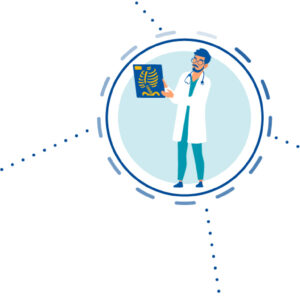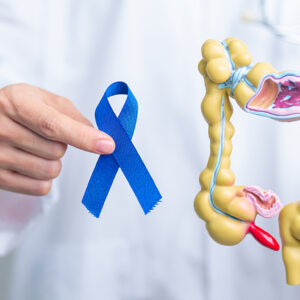Background
The Thrombophilia and Neonatal Alloimmune Thrombocytopenia (NAIT) panel detects variants that increase the risk of:
• early or late miscarriage
• thrombotic events
• NAIT
The panel can help with the identification of at-risk individuals and family members before life-threatening events, and can lead to the best clinical management of inherited thrombophilia and bleeding disorders, as well as tailored clinical management for individuals at risk for recurrent pregnancy loss to reduce or prevent complications. Identifying variants associated with recurrent pregnancy loss can determine the need for taking treatment, such as hormonal therapy or anticoagulants, which may reduce or prevent complications during pregnancy and delivery.
The Thrombophilia and NAIT Panel can be chosen as an Add-on to the Rodinia Female or Male Infertility Panels, or as a Stand-alone panel.
Scientific Background:
Early or late miscarriage due to parental thrombophilic mutations:
• ‘Among couples in whom either partner carries greater than one thrombophilic allele, the relative risk of miscarriage in a future untreated pregnancy was 1.9 compared with those couples
who carries no thrombophilic mutation.’ Jivraj S, Rai R. et al. 2006
• ‘In addition, a pooled meta-analysis of 57 articles also demonstrated that both maternal and paternal MTHFR gene C677T and A1298C variants are associated with RPL.’ Ibrahim and Johnstone, 2018
• 'Heterozygosity of FVL, FVR2, ACE, and ApoE2 genes in both parents play crucial role in RPL and should be considered as a risk factor in RPL. Current results showed that RPL is related to
combined parental (not only maternal) thrombophilic gene mutations.’ Ozdemir et al. 2011
• 'Our report is the first to suggest that fetal carriers are at risk during prenatal life. Our data suggests that fetal expression of this mutation predisposes the fetus to miscarry or predisposes the formation of placental infarction in the distribution of fetal vessels. [...] Fetal carrier frequency of the F5 Leiden mutation in miscarried fetuses is greater than twice that
of the general population…Prenatal fetal expression of the factor V Leiden mutation and thus a predisposition to thrombosis may be present in the first half of gestation as spontaneous
miscarriage or later during gestation as placental infarction.’ Dizon-Townson et al. 1997
• ‘We have found evidence of an association between the paternal carriage of FV Leiden and the predisposition to recurrent pregnancy loss, thereby supporting the hypothesis that genetic
contributions from both parents are essential factors in the development of this obstetric disorder. [...] We found that paternal FV Leiden carriage conferred more than six times the normal risk of developing recurrent pregnancy loss in couples where the women had no apparent predisposition for this obstetric complication.' Udry et al., 2014
NAIT:
NAIT occurs in one in 1,000 -1,500 live births and is the most common cause of severe thrombocytopenia and intracranial hemorrhage in term infants. It is the equivalent of red blood cell
alloimmunization and is due to transplacental passage of maternal antibodies against paternally derived fetal platelet antigens. [...] In order to prevent the devastating and potentially life-threatening manifestations of the disease, the goal is to initiate treatment early with serial percutaneous umbilical blood sampling, intravenous immunoglobulin administration, prednisone, and/or fetal platelet transfusions. Mella and Eddleman, 2015
Who is this test for?
• Couples or individuals with more than one miscarriage
• Neonates with thrombocytopenia
• Individuals with earl-age onset or with a strong family history of thrombotic events
• Individuals with recurrent episodes of thrombosis
• Neonates with unexplained thrombosis
Specimen and Turnaround time:
Buccal swab, 2-4 weeks
References:
• Jivraj S, Rai R, Underwood J, Regan L. Genetic thrombophilic mutations among couples with recurrent miscarriage. Hum Reprod. 2006 May;21(5):1161-5. doi: 10.1093/humrep/dei466. Epub 2006 Jan 23. PMID: 16431900.
• Ibrahim Y, Johnstone E. The male contribution to recurrent pregnancy loss. Transl Androl Urol. 2018 Jul;7(Suppl 3):S317-S327. doi: 10.21037/tau.2018.05.14. PMID: 30159238; PMCID: PMC6087842.
• Ozdemir O, Yenicesu GI, Silan F, Köksal B, Atik S, Ozen F, Göl M, Cetin A. Recurrent pregnancy loss and its relation to combined parental thrombophilic gene mutations. Genet Test Mol Biomarkers. 2012 Apr;16(4):279-86. doi: 10.1089/gtmb.2011.0191. Epub 2011 Nov 2. PMID: 22047507.
• Dizon-Townson DS, Meline L, Nelson LM, Varner M, Ward K. Fetal carriers of the factor V Leiden mutation are prone to miscarriage and placental infarction. Am J Obstet Gynecol. 1997 Aug;177(2):402-5. doi: 10.1016/s0002-9378(97)70205-9. PMID: 9290458.
• Udry, E., Gould, D., Bridges, D., & Beck, L. (1997). Down but Not Out: Athlete Responses to Season-Ending Injuries, Journal of Sport and Exercise Psychology, 19(3), 229-248. Retrieved Mar 29, 2023, from https://doi.org/10.1123/jsep.19.3.229
• Mella MT, Eddleman K. Neonatal alloimmune thrombocytopenia. International Journal of Clinical Transfusion Medicine. 2015;3:29-40 https://doi.org/10.2147/IJCTM.S51926
How many genes are tested in this panel?
22 genetic variants on 17 genes are tested.





















